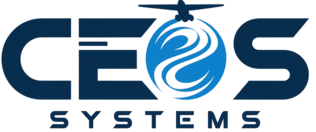Step into the future of aviation with the SR-72 Darkstar, a groundbreaking hypersonic aircraft that’s redefining the limits of speed and technological innovation. This remarkable successor to the legendary SR-71 Blackbird promises to revolutionize military aviation with capabilities that seem straight out of science fiction.
The SR-72 Darkstar represents a quantum leap in aerospace technology, capable of achieving an astounding Mach 6 – approximately 4,000 mph (6,400 km/h). This makes it twice as fast as its predecessor, the SR-71 Blackbird. Unlike conventional aircraft operating at subsonic or low supersonic speeds, the SR-72 ventures into the rarely explored hypersonic realm, marking a transformative approach to aircraft design and mission capabilities.
The Vision Behind the SR-72
Lockheed Martin’s ambitious project addresses a critical gap in modern military aviation: the ability to reach any global location within an hour. This revolutionary platform aims to maintain aerospace supremacy through groundbreaking innovations in propulsion systems and materials science, potentially reshaping military doctrine and reconnaissance strategies.
Development Timeline and Milestones
- Early 2010s – Initial conceptual designs revealed
- 2018 – Announcement of significant progress in propulsion system development
- Successful completion of wind tunnel testing
- Material research breakthroughs achieved
- Propulsion system demonstrations conducted
- Projected operational capability: late 2020s or early 2030s
Unveiling the SR-72 Darkstar Top Speed
At Mach 6, the SR-72 Darkstar’s capabilities are truly extraordinary. This hypersonic marvel could theoretically cross the continental United States in under 30 minutes, representing not just an incremental improvement but a fundamental transformation in aircraft performance.
Hypersonic Technology and Its Impact
The SR-72’s revolutionary Turbine-Based Combined Cycle (TBCC) engine seamlessly integrates traditional turbine engines with scramjet technology, enabling efficient operation from takeoff to Mach 6. This breakthrough system operates in a unique physical environment where conventional air molecule behavior no longer applies.
| Feature | Impact |
|---|---|
| TBCC Engine | Enables seamless transition from takeoff to Mach 6 |
| Scramjet Technology | Optimized for hypersonic flight regime |
| Defense Implications | Potential to render existing defense systems obsolete |
Comparing the SR-72 with Other Fast Aircraft
- SR-71 Blackbird: – Mach 3.3 (2,193 mph)
- NASA X-43A: – Mach 9.6 (unmanned, single-use)
- X-51A Waverider: – Mach 5.1 (experimental platform)
- SR-72 Darkstar: – Mach 6 (4,000 mph) with operational flexibility
What sets the SR-72 apart is its combination of hypersonic speed with practical operability, including conventional runway takeoff capabilities and reusability – a true breakthrough in aviation history.
Design Features of the SR-72 Darkstar
The SR-72 Darkstar’s revolutionary design emerges from its ambitious Mach 6 performance target. This extraordinary aircraft demands a complete reimagining of conventional aerospace principles to create an airframe that maintains stability at speeds approaching 4,000 mph while managing extreme temperature conditions.
- Sleek arrowhead profile optimized for hypersonic performance
- Minimized control surfaces to enhance stability at extreme speeds
- Integrated airframe-propulsion system design
- Revolutionary synergy between engine and structure
- Innovative aerodynamic solutions for hypersonic flight
Innovative Materials and Engineering
| Engineering Challenge | Solution |
|---|---|
| Surface Temperatures (2,000°F+) | Advanced composite materials and ceramic matrix composites |
| Thermal Management | Revolutionary thermal protection systems |
| System Operation | Dual-purpose fuel systems (coolant and propellant) |
| Electronics Protection | Shielded avionics with active cooling systems |
Aerodynamics and Flight Efficiency
The SR-72’s aerodynamic design represents a masterpiece of engineering innovation, employing waveriding principles where the airframe actively compresses incoming air before it reaches the engines. This revolutionary approach transforms traditional aerodynamic obstacles into performance advantages at Mach 6.
- Integrated airframe-propulsion system design
- Variable geometry features for multi-speed optimization
- Calculated shock wave patterns for drag reduction
- Advanced thermal load management systems
- Optimized fuel efficiency across speed ranges
The Future of Hypersonic Flight
The SR-72 Darkstar’s Mach 6 capability heralds a new era in aviation technology. Its groundbreaking TBCC (Turbine-Based Combined Cycle) propulsion system seamlessly integrates conventional turbofan engines with ramjet technology, solving the critical challenge of transitioning from subsonic to hypersonic speeds.
Potential Military and Civilian Applications
- Military Capabilities: – global reach within hours, interception-resistant reconnaissance
- Emergency Response: – rapid global deployment of medical supplies and disaster relief
- Commercial Travel: – potential for 90-minute intercontinental flights
- Technology Transfer: – innovations applicable to civilian aerospace development
- Global Transportation: – revolutionary changes in international commerce and logistics
Challenges and Opportunities Ahead
The path to practical hypersonic flight remains strewn with formidable engineering obstacles. At Mach 6 speeds, surface temperatures can exceed 2,000°F, demanding revolutionary materials that don’t yet exist in commercial applications.
- Material Challenges: – development of composites and alloys that maintain structural integrity under extreme thermal stress while remaining lightweight
- Control Systems: – ensuring flawless operation in plasma-surrounded environments
- Aerodynamic Complexities: – managing unpredictable behavior at hypersonic speeds
- Communication Issues: – overcoming unprecedented interference in high-speed environments
- Thermal Management: – developing solutions for extreme heat generation
Despite these challenges, the pursuit of hypersonic flight capabilities represents one of humanity’s most exciting technological frontiers. The SR-72 Darkstar’s development is catalyzing innovations across multiple industries:
| Innovation Area | Potential Applications |
|---|---|
| Heat-Resistant Materials | Spacecraft construction, industrial manufacturing |
| Energy Systems | More efficient power generation and distribution |
| Computational Fluid Dynamics | Advanced aerodynamic modeling and simulation |
| Manufacturing Techniques | Next-generation production methods |
| Autonomous Systems | Enhanced control and navigation technologies |
